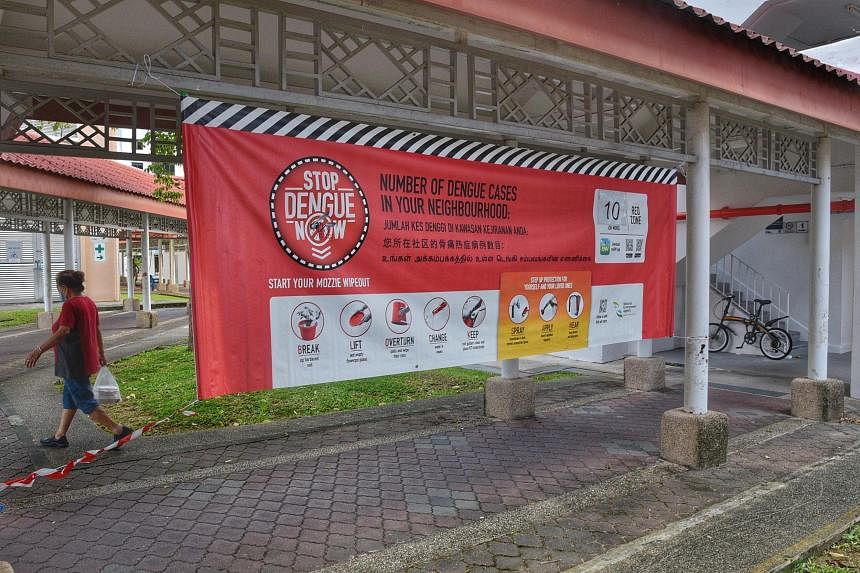
SINGAPORE – Two people died from dengue in Singapore between April and June, logging the first deaths from local dengue infections for 2023.
The National Environment Agency (NEA) said in its quarterly dengue surveillance report on Tuesday that 1,989 cases were recorded in the second quarter of 2023, a 15.7 per cent decrease from the previous quarter.
This is the fourth consecutive quarter in which the number of dengue cases has dropped, despite a high number of cases at the start of the year. The 279 weekly cases recorded in the first week of 2023 were the second-highest for the first week of the year in the last five years.
NEA said then that the spike was driven by a high Aedes aegypti mosquito population and low population immunity against the prevalent dengue serotype then.
Dengue is spread through the bite of a female Aedes aegypti mosquito, the same species that carries yellow fever and Zika.
Symptoms can appear three to 14 days after a person is bitten. They include joint and muscle pain, severe headache with pain behind the eyes, and skin rash.
The number of dengue clusters identified from April to June dropped by about 34 per cent compared with the previous quarter, according to the latest NEA data.
Of the 213 clusters detected, 170 were closed in the same period.
However, NEA has detected more mosquito habitats, with about 5,300 identified in the second quarter of 2023. This marks an increase of about 15 per cent compared with the previous quarter.
The top five breeding habitats for the second quarter of 2023 in homes were pails, flowerpot plates and trays, vases, canvas sheets and plastic sheets, and refuse bins placed outside landed houses.
The top five breeding habitats for the same period in public areas were covered perimeter drains, discarded containers, gully traps, scupper drains of housing estates and covered carpark drains.
People can be infected with dengue up to four times as there are four serotypes of the dengue virus. Repeated infections increase the risk of severe dengue and death.
NEA’s report noted that the dengue serotype-1 virus accounted for the majority of the cases sampled between April and June. This was followed by dengue serotype-3, dengue serotype-2 and dengue serotype-4.
The peak season for dengue is from June to October because of warmer weather, faster multiplication of the virus in mosquitoes and accelerated development of the mosquitoes.
https://news.google.com/rss/articles/CBMiY2h0dHBzOi8vd3d3LnN0cmFpdHN0aW1lcy5jb20vc2luZ2Fwb3JlL2hlYWx0aC9zaW5nYXBvcmUtcmVjb3Jkcy1maXJzdC0yLWRlYXRocy1mcm9tLWRlbmd1ZS1mb3ItMjAyM9IBAA?oc=5
2023-07-25 09:40:00Z
2253918045
Tidak ada komentar:
Posting Komentar